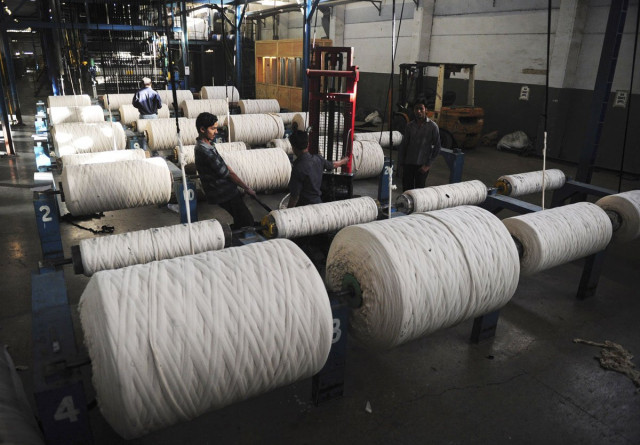GSP Plus: Opportunities for textile exporters abound
Country on track to increase exports to EU by $1 billion

For the exporters who are looking for more trade avenues, the European Union’s Generalised Scheme of Preferences (GSP) Plus has opened new doors of opportunities.
Since January, the month when Pakistan qualified for the GSP Plus, exporters of finished garments have seen a surge in enquiries and orders from the EU.
“We have noted an increase of 20-25% in enquires and orders from European countries in the last 11 months,” Multinational Export Bureau CEO Babar Khan says in an interview with The Express Tribune.

Khan, who runs two textile factories in Karachi that export most of their knitwear to the EU and United States, is not the only one who has benefited from the duty concessions. Most of the garment exporters have achieved growth in their exports but of varying degrees.
“Today, we not only have new customers but we also have been able to retain the old ones from the EU,” says Khan while talking about how new business is continuously coming to factories in Pakistan.
The growth that his business has recorded is very close to the overall rise in knitwear exports from the country.
Knitwear exports jumped by a handsome 25% from July to October this year compared to the same period of previous year, according to the latest government data.
Similarly, readymade garment exports rose 10% whereas cotton cloth and cotton yarn shipments dropped 36% and 10% respectively.
The government expects to achieve its target of $1 billion in additional exports to the EU by the end of December. Looking at the data of the first eight months, the goal seems realistic. Textile exports to the EU jumped to $3.512 billion from January to August, up 21.4% compared to $2.894 billion in the same period of previous year.
Reflecting the government’s optimism, Khan believes Pakistan will succeed in increasing exports by $1 billion by the year-end.
A record decline in international oil prices, recent 0.5-percentage-point cut in benchmark interest rate, five-year low cotton prices and 11-year low inflation are some of the factors that will support textile exporters in coming months.
However, there are worries as well as the rupee has appreciated against the euro.

Since July this year, the rupee has strengthened over 6% against the euro, which is eroding profit margins of exporters. However, a significant increase in volumes may help offset the negative impact to some extent.
For instance, when Khan took orders a few months ago, euro was trading at Rs130, but now it stands at Rs125, which is going to affect profit margins.
Diversification
Speaking about the lack of product diversification in the textile sector, Khan says diversification happens where the exporter sees some stability. In this scenario, he can plan for the long run.
Unfortunately, overall uncertainty in the market and fluctuations in export orders depending on the season have always discouraged the investors from long-term planning.
Also the country has experienced serious security and energy challenges, resulting in shrinking of the textile industry over the last few decades, he adds. Bangladesh, which is a major competitor in the EU market, has remained relatively undisturbed by such challenges.
Visionless bureaucracy
Khan is of the view that successive governments have never taken export industries seriously and the attitude of a visionless bureaucracy has compounded the problems as it has failed to give any direction to the key export industry.
However, he believes that Pakistan can recoup the lost ground against regional competitors including Bangladesh and India, but it will be a long and painful journey.
“The GSP Plus is a gateway and it can bring many positive changes in the textile industry. Our exports can grow further if we arrest the rising cost of production especially the cost of power production.”
The writer is a staff correspondent
Published in The Express Tribune, December 8th, 2014.
Like Business on Facebook, follow @TribuneBiz on Twitter to stay informed and join in the conversation.



















COMMENTS
Comments are moderated and generally will be posted if they are on-topic and not abusive.
For more information, please see our Comments FAQ